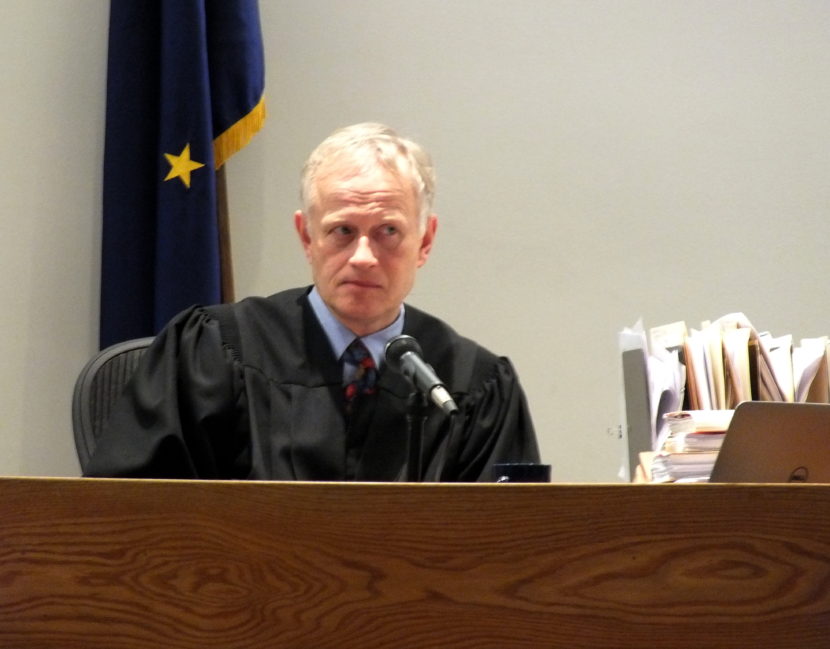
A judge Tuesday ordered that independents can run in the Alaska Democratic Party primary, ruling in the party’s favor.
It’s not clear whether independent Gov. Bill Walker will run in the primary.
Juneau Superior Court Judge Philip Pallenberg wrote in his order that political parties have the right to associate themselves with the candidates of their choice, regardless of their party registration.
The Alaska Democratic Party tried last year to allow nonpartisan or undeclared candidates to run in its primary, but the state election officials rejected the change. The party filed a legal challenge this year, which led to Pallenberg’s order.
Party Executive Director Jay Parmley said he’s pleased with the order.
“We’ve long believed that we have the right to allow people to associate and participate in the party, regardless of registration – and today the judge confirmed that,” Parmley said.
Walker said when he and Lt. Gov. Byron Mallott filed for re-election in August that they weren’t planning to run in a primary. But the order could make it an option.
Lindsay Hobson is Walker’s daughter and campaign spokeswoman. She said the campaign has no comment on the order.
“Gov. Walker and Lt. Gov. Mallott have an ongoing duty to uphold the laws of the state,” she said. “And since this is a pending legal matter, to which the state is a party, the candidates can’t comment at this time.”
Lawyers for the state had defended a law that requires primary candidates belong to the party holding that primary. Pallenberg wrote that the state failed to place sufficient faith in the ability of voters to make informed decisions.
Assistant Attorney General Cori Mills said the Department of Law would decide whether to appeal the order.
“We are still reviewing the decision, but we will engage in our normal appeal evaluation process,” Mills said.
This decision to appeal can take three to five weeks.
One major question is how the name of an independent candidate who wins a party primary will appear on the general election ballot.
Pallenberg wrote that state law requires the general election ballot “inform voters” that an independent primary winner is the Democratic nominee. He also wrote that state officials will ultimately determine the design of general election ballots.
The Democrats had changed their party rules so it appeared possible their primary winner could be on the general election ballot without the party’s name.
Now Parmley said the ballot should reflect both the candidate’s party registration – or lack of registration – as well as the fact they won a primary.
“I think they’ll be able to work to work this out pretty effectively, (in a way) that satisfies all concerned here,” he said.
Alaska Republican Party Chairman Tuckerman Babcock said he’s glad the decision upholds political parties’ freedom of association. He added he believes the Democrats hoped to nominate independents without having the party’s name listed next to the candidate on the ballot.
“I mean, if they want people to seek the Democrat nomination, there should be some recognition on the general election ballot that that’s what the person did,” he said.
The deadline to register for the August primary is June 1.
